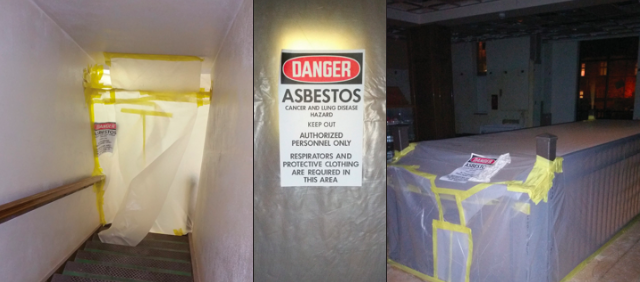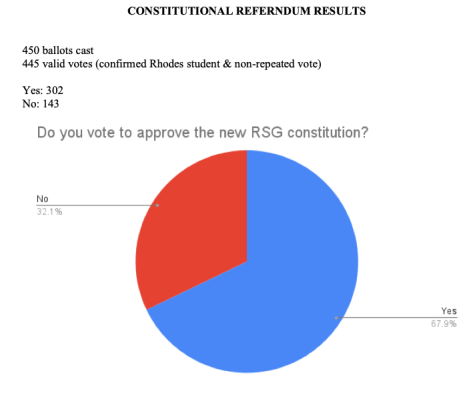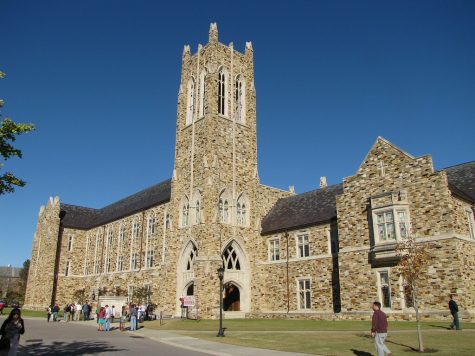Spotlight: Asbestos found in old Briggs Bookstore, students not notified
Asbestos in Briggs Hall
November 18, 2016
Since Rhodes College’s inception at its current Memphis location, several dozen buildings have been erected—the older the building, the more likely it is to contain hazardous materials such as asbestos. The most recent disturbance of asbestos-containing material occurred over Fall break in Briggs. This disturbance occurred when construction employees began their renovation of Briggs’ lower level; the asbestos was identified within portions of the floor tile.
Offices in the basement of the facility included the book store and student organization offices. Physical Plant Director Brian Foshee said, “As per regulation, we notified the occupants…We had discussions with [the book store] about abatement, so they knew… or at least the management knew.”
Oddly enough, bookstore employees could not remember such a conversation taking place, some simply denied having been notified. Bookstore Manager Shalinda Barthelmy said, “I am surprised to learn there was asbestos in Briggs.” When asked if she had received notification of the asbestos, Barthelmy said, “I don’t recall any face-to-face conversations or notification. I got an email about the work being done in Briggs, but I can’t remember if it said anything about asbestos.”
Bookstore Accounts Payable Betty Mohler said, “I worked in the basement the entire time, that was my job…I certainly should have been notified by today’s standards.” Mohler, now concerned, has considered seeing a doctor for potential asbestos exposure.
Conversely, Rhodes appears to have not informed student organizations, housed in the basement of Briggs, about the asbestos. Explaining his reasoning, Foshee said, “The building was vacated and student offices had already been relocated to the basement of Burrow Hall before abatement and construction began.” When pressed about previous renovations to Briggs, Foshee said, “I don’t recall having an abatement conversation with student occupants.”
Regardless, students havefelt they should be informed of all hazardous materials across campus. Sophomore Ashley Plunk said, “I think the administration has a responsibility to inform their students, especially when some of them have severe reactions to asbestos. Asbestos has sent me to the hospital in the past, so I think I should know. Some students have medical accommodations due to asbestos in particular. We should know where asbestos is across campus, no matter how severe the college deems it to be.”
Addressing past precedent, Vice President for Finance and Business Affairs Kyle Webb said, “There has not been, to my knowledge, any incident regarding asbestos causing an injury. I would expect if such an occurrence had happened, I would have spoken to the party’s legal counsel.”
Emphasizing the tremendously low likelihood of coming near asbestos on campus, Foshee said, “Floor tile and thermal insulation are the most prevalent asbestos containing material on campus. Those materials are managed in place until there is a potential to disturb the materials, primarily during a renovation project. Most of the friable asbestos-related materials on campus are in crawl spaces or mechanical areas closed off from the public.”
Webb also released a statement regarding the college’s asbestos management plan and compliance with federal law:
Generally, buildings constructed before 1980 were constructed with materials containing asbestos. Since asbestos was banned as a construction material in the early 1980s, the College has abated asbestos in the course of carrying out renovations when the potential existed to disturb asbestos in order to complete the renovations. In each case, in accordance with College policy, the occupants of the affected buildings were notified in advance of the abatement. The College has an asbestos management plan on file in the Physical Plant office that is available for review by interested parties. The College asbestos management plan adheres to the Asbestos School Hazard Abatement Reauthorization Act.
Still, Briggs is not the only facility on campus housing asbestos-related materials. Of the 41 buildings on campus, approximately 22 contain some amount of asbestos. Rhodes plans to gradually remove all the asbestos as renovations are needed or when there is potential to disturb asbestos materials. This will be done through an abatement process executed by a private contractor. Briggs will be completely abated by the end of this month.















